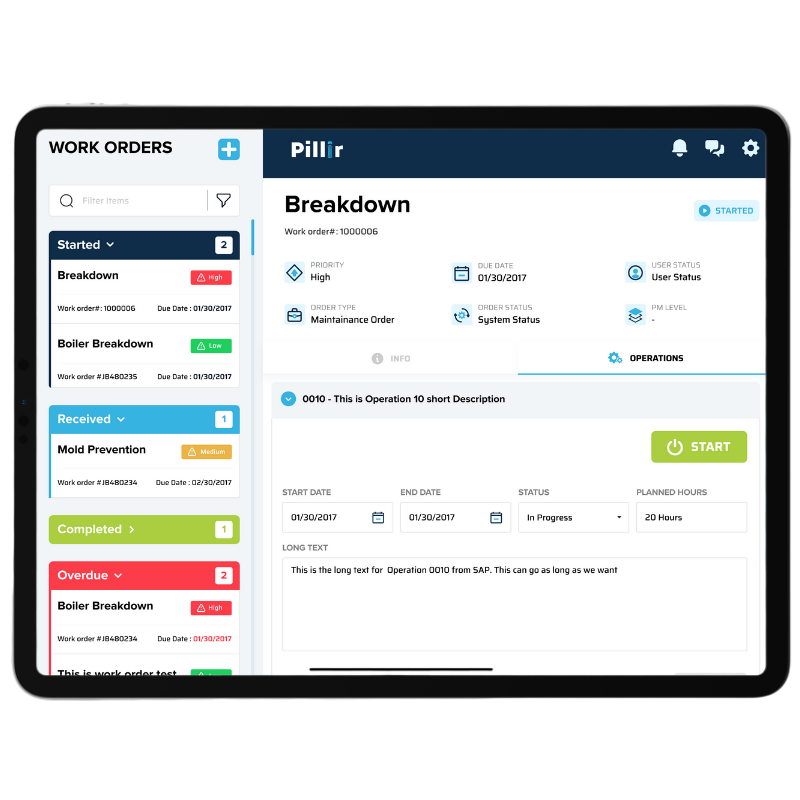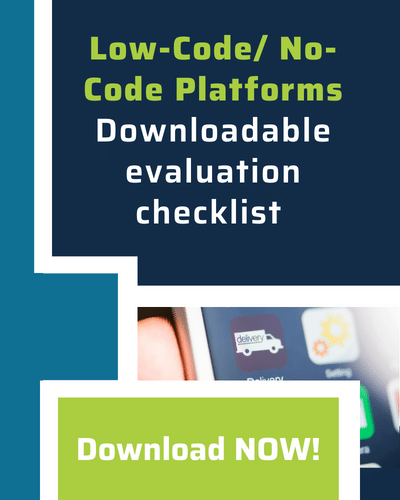Enterprise resource planning software is an essential asset for many large corporations, yet ERP transformations remain time-consuming, complicated, and expensive. So what are some options out there for ERP software users?
One such approach to solve these challenges is through agile business processes, which have the potential to dramatically streamline ERP projects and make SAP easy to use.
An agile business process is a flexible project management technique in which changes can easily be made on the fly. They originated as a result of trying to find an alternative to manual, document-driven, software development processes. EdgeReady Cloud is an example of a rapid application development platform that supports agile business processes by offering customized, automated workflows that reflect agile best practices, allowing your team to produce successful apps in a quick and efficient manner.
Throughout this blog, benefits of implementing agile methodology with ERP will be emphasized, best practices for ERP in an agile environment will be highlighted along with the meaning of ERP software and how EdgeReady Cloud supports agile business processes.
What is ERP?
Enterprise Resource Planning (ERP) is a process used by corporations to maintain and harmonize the important parts of their businesses. Many ERP software applications are essential to companies because they help them implement resource planning by integrating all of the processes needed to run their business within a single system. An ERP software system can also integrate planning, human resources, purchasing inventory, sales, finance, marketing, and more.
The ERP system is an internal company tool which aids business processes and data exchange between the different departments of the company.
Before ERP software users begin an agile transformation, it’s important to be wary of what benefits it provides to your business. Applications need to bear business value quickly to support innovation and increase competitiveness. Agile enables ERP to do this while also delivering responsiveness to change. Sounds great, right?
Benefits of Implementing Agile Methodology with ERP
Many corporations in industries such as manufacturing, oil and gas, or agriculture, for example, tackle various operational challenges as they expand and grow their business. Much of these challenges involve changes to ERP software and not enough time to expend towards transforming it.
To solve for this, these same corporations implemented agile methodologies in their ERP software to become more competent and practical, and to make agile workflows in SAP. ERP software itself, in combination with agile methodologies, acts as the basis for optimizing business operations, improving efficiency, and better visibility of their supply chain operations. Access to this information allows them to perform critical business decisions and manage an ambitious advantage in their industry.
Below are more benefits of implementing agile methodology:
- Instant access to information of your company: All work processes are registered in the software which can be accessed at any time. This functionality allows ERP software users to make the best decisions in the management of projects.
- Enhance Team Management: With agile methodologies, automating work and eradicating any potential errors is possible within an ERP software, giving end users a more analytical role rather than an operational and time-consuming one.
- Process Integration: The centralization and integration of company information in processes such as operations, purchasing, sales or finance, allows easier maintenance of the growth of business lines.
- Eliminate Duplications: Duplicate data is removed in the management of any project within an ERP which decreases administrative work and enhances productivity.
- Integrated Information: With the help of ERP, all the business activities of your corporation will be in one central location, where you can obtain analysis and breakdowns from any environment. In this way, workers will be able to access data they need instantly, giving them the ability to respond quickly to customer needs.
Agile Business Process Best Practices for ERP Software Users
Software is developing the face of business today, and the speed at which your business can adapt will often be regulated by the speed at which software can change. To support ERP transformations through agile business processes, there are some best practices to be consider:
Understand the Concept of Agile
It’s important to remember that Agile is not waterfall. According to TrustRadius, waterfall ERP projects are generally planned beforehand with solutions designed upfront. This approach to software development is highly sequential and can be broken down into seven distinct phases. Alternatively, the agile approach values adaptability and involvement. The problems and its solutions are not necessarily very well understood or documented upfront & a project is broken up into smaller pieces which can be delivered in shorter iterations, or sprints.
Specify Your Stakeholders
Outlining which members of an organization will be impacted in the process of a project is crucial. Including these members in the process of developing a project will support the success of the project. Additionally, all stakeholders have to understand what agile means for them as well as what benefits and changes they can hope to see.
Set Up a Business Case
Understanding what benefits agile methodologies for ERP can deliver is important so that you can justify a business case for it.
These questions help to set up a business case:
- How much would it cost to delay application delivery?
- How much do you spend on application development and testing?
- What does it cost to deliver applications now?
Reorganize Teams Around Projects
Agile requires that we address how teams are formed, interact with each other. For this reason, open communication channels between team members is necessary. Development and testing teams will need to work as one, with a business representative overseeing things as a software product manager. Successful adoption of agile in ERP is often seen in the form of many smaller teams working together to deliver the specific related requirements.
Create a Backlog
Agile focuses on business working solutions and outcomes wherein a backlog of software requirements is created in the form of user stories for specific personas. This backlog should be prioritized so that stories which produce the most business benefit are addressed first. Prioritization on what’s most important is a necessary step as well as what the dependencies are between software requirements.
Establish Sprint Meetings
Along with creating a backlog, instant feedback is another important concept in agile so everyone working on the project is on the same page. Short daily meetings are imperative to keep the team up to date. After sprint meetings, having a retrospective session can be used to review what was completed or was not done and to look for areas of improvement.
How EdgeReady Cloud Supports Agile Business Processes
EdgeReady Cloud is a low-code, rapid application development platform that helps companies build scalable and resilient applications with little-to-no programming. EdgeReady applications are hosted as SaaS applications, and contain pre-built features with a drag-n-drop interface as well as patented offline capabilities that enable data accuracy in any connectivity landscape. So, how does it support agile business processes for ERP software users?
With a drag-n-drop interface, users are able to easily create applications in any connectivity landscape. This supports agile business processes for ERP software users because it allows for a more streamlined process to be followed, and also enables data accuracy anytime and anywhere by functioning both online and offline. Additionally, EdgeReady Cloud integrates with any ERP system, including SAP, making the implementation and integration process faster and efficient.
Learn how to build agile business processes and create custom applications to modernize your workflows. Save on cost, time, and resources with EdgeReady Cloud - an efficient and effective way to create and implement agile business processes for SAP. Receive a free trial of EdgeReady Cloud today - contact our team to learn more.





 Back
Back/Logo%20-%20black%20text%20blue%20pillar%20(large)-1.jpg)

